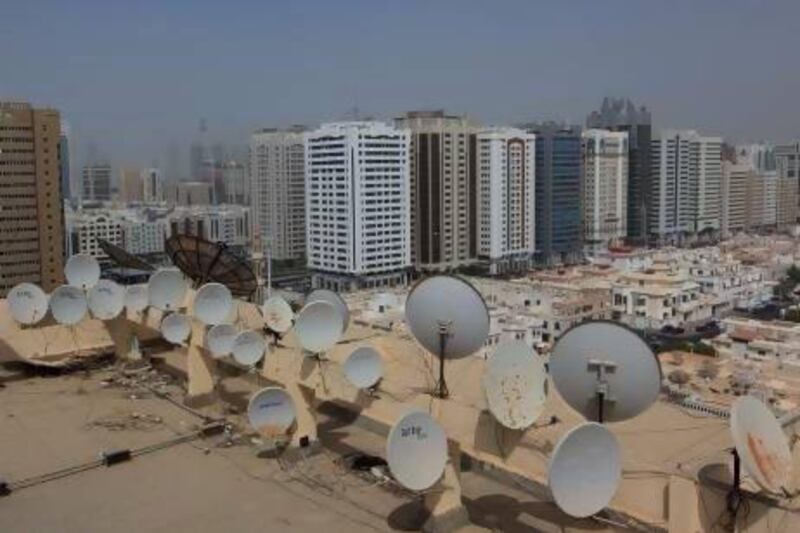DUBAI // Satellite channels and websites that show films, television shows and sporting events without buying broadcast rights are costing companies US$500 million (Dh1.8 billion) a year in lost revenue.
Two stations were taken off air last month by Nilesat for allegedly showing pirated versions of the latest Hollywood blockbusters.
The move was welcomed by broadcasters who said the practice affected the amount they could invest in local programming and talent.
"As an industry, we started to tackle this issue head-on some weeks ago with the satellite providers because channels were illegally infringing on our intellectual property," said David Butorac, chief executive of OSN.
"People think that pirated material is a victimless crime but that is not the case. The region as a whole is losing about $500million a year.
"The money lost to legitimate rights holders by people watching pirated movies is money that we cannot then reinvest to improve our services, in programming or local talent."
OSN together with other broadcasters including the MBC Group and big Hollywood studios have been trying to educate regulators and satellite companies in the region about copyright infringement, said Mr Butorac.
"We spend upwards of $250,000 to get exclusive rights to screen a big Hollywood movie from the studios. If you then have some of these pirate channels showing these blockbusters, often from DVDs sometimes just a few months after they are released, that has a huge impact on us."
Police take an active role in tackling video piracy with the Telecommunications Regulatory Authority providing a support role, according to Michael Dean, an analyst at Informa Telecoms and Media in Dubai.
He said operators here were using different tactics to beat the pirate channels."In recent years there has been a crackdown by authorities and increased action by pay TV operators towards TV and video piracy," he said.
"For example, OSN recently publicised that since switching to a more secure platform, through deploying improved satellite receivers and changing its set-top-box in 2010, it has seen a 30 per cent increase in subscribers.
"However, piracy is still a major issue in the UAE and across the region, especially when it comes to nefarious consumers using devices to de-scramble pay DTH transitions.
"As with many markets where TV piracy thrives, a large driver is a fervent cultural acquiescence among many consumers towards viewing pirated content."
The channels that were taken off air last month were Panorama Comedy and Panorama Action, which were aired on Nilesat. Broadcasters are also working with Noorsat and Gulfsat to tackle the issue. "Satellite companies will now take action against any channel that shows illegal content," Mr Butorac said.
The illegally obtained content allegedly being shown by the Panorama channels, which are believed to be based in Egypt, was worth an estimated $40 million a year.
Despite the channels being taken off air, broadcasters admit that tackling piracy requires constant vigilance.
The main challenge they face is that it only requires a dish to be pointed in the direction of a satellite to allow people to pick up these kinds of channels. "They are free-to-air so it doesn't take much for people to be able to view them," said Mr Butorac.
Rights holders are also targeting websites that stream films and sports events.
Many of the pirate channels are operating without a licence from rights holders, according to Sam Barnet, chief executive of MBC Group.






